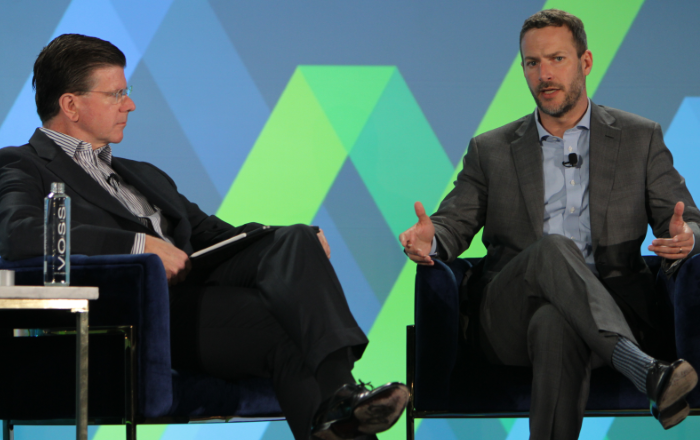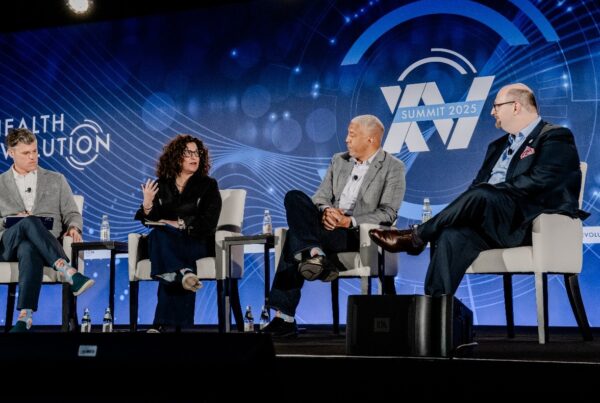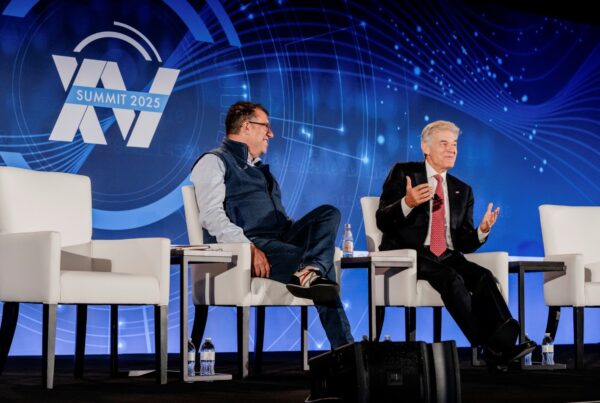Adam Boehler has not been shy about his distaste for the fee-for-service model.
As Senior Advisor to Secretary Azar, Deputy Administrator, CMS, and Director of the Center for Medicare and Medicaid Innovation, he is in a position to hasten the change toward value-based payment models. And from his previous work as founder and CEO of Landmark Health, a home health care provider following a value-based model, he has first-hand experience with the challenge of managing risk in a health care business.
In a discussion with Neil de Crescenzo, CEO, Change Healthcare, at the Health Evolution Summit, Boehler shared some of the work taking place within CMS to advance accountable care models, noting that for many practices trying to follow accountable care guidelines, earning incentive payments has seemed as random as “winning a sweepstakes.”
He said CMS is exploring model concepts that will remove the uncertainty surrounding value-based payments.
“We can do a lot more to enhance predictability,” he said. “I think if we request accountability from people, we need to do that. And so I think some of the models that you’ll see coming out, we’ll make it so that you can really base business models on risk. I think that’s a big turning point.”
Boehler said potential payment model concepts are being developed that will work for both large and small practices. “I think it’s important in outcomes based or value-based care to create avenues for everybody to participate. Part of our goal is to empower folks at a local level to manage the patient base.”
He believes that if the incentives can be properly aligned, then the infrastructure will shift to support the new alignment. For example, we will see changes to how electronic medical record systems are structured.
“If a doctor needs to keep people out of the hospital, you’re going to see the EMR evolved to a clinical system and a clinical system that incorporates predictive and analytics,” he said. If clinicians have financial incentives to keep healthy patients at home rather than in the hospital, they’ll demand information that will help them achieve those goals.
Boehler is optimistic about the potential for a better use of analytic data and artificial intelligence to help take cost out of the system by identifying disease before it occurs.
“We’re not going to take real money out of the health care system unless we orient toward preventing,” he said. “That’s the goal of AI. And AI, when used well, is humanizing medicine more because it’s freeing physicians to spend time with their patients where they add value.
“Medicine today is a science that’s practiced like an art,” he said. “The goal of AI is to free physicians to learn from the millions and millions of interactions that happen across the country so that proactively we’ll identify a disease before it occurs.”
To help spur that change, CMMI launched the AI Health Outcomes Challenge on March 27th, with a million dollar grand prize. The challenge’s objective is to develop AI or deep learning methodologies that can predict unplanned hospital and SNF admissions. Boehler said the challenge has already received more than 500 applications. CMS expects to announce by July 19 which applicants will move on to the first stage of the competition.
“It’s the first volley for us. I think you’ll see a lot more from us pushing data science in health care.”
Update: On Monday April 22nd, the Department of Health and Human Services announced the CMS Primary Cares Initiative, a major push to transform primary care in America. The initiative includes new payment models for smaller primary practices to move away from fee-for-service and also more enhanced risk opportunities for larger organizations.











